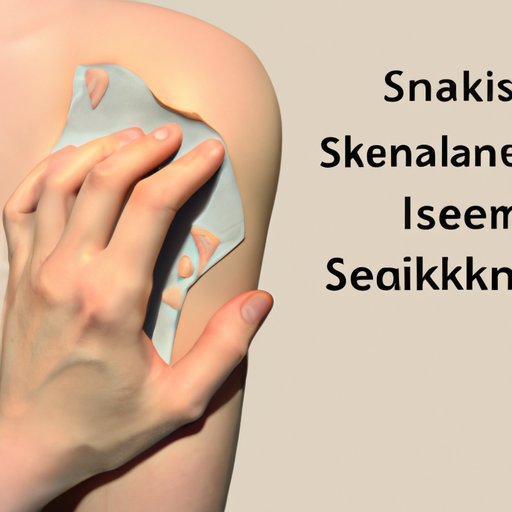Introduction
Have you ever experienced the feeling of something crawling on you, even when there’s nothing there? This sensation, known as skin paresthesia, affects many individuals and can be accompanied by discomfort, anxiety, and even shame. Understanding the causes and triggers of this feeling is crucial for finding solutions and relief.
The Creeping Sensation: Demystifying Why it Feels Like Something is Crawling on You
Skin paresthesia is a phenomenon that has been observed throughout history, with different cultures and regions providing their own names for it. In the western world, it has been referred to as “formication”, a term derived from the Latin word “formica” which means ant. Regardless of the name, the sensation can be unsettling and disruptive in daily life.
The Science Behind That Creepy Crawly Feeling on Your Skin
The nervous system and our sense of touch play a significant role in the experience of skin paresthesia. Touch receptors, located on the skin’s surface and in deeper layers of tissue, respond to pressure, temperature, and other stimuli. When these receptors are overstimulated or activated in unusual ways, they may send signals to the brain that create the sensation of something crawling on the skin. Research studies have suggested that there may be other factors at play as well, such as the body’s inflammatory response or dysfunction in the nervous system.
Exploring the Causes of Skin Paresthesia or the Sensation That Something is Crawling on You
While the sensation can occur spontaneously, it can also be a symptom of underlying medical or psychiatric conditions. Peripheral neuropathy, a type of nerve damage, is a common cause of skin paresthesia, with symptoms including tingling, numbness, and a creeping sensation. Multiple sclerosis, a chronic autoimmune disease that affects the central nervous system, may also cause skin paresthesia. On the psychiatric side, anxiety disorders, depression, and obsessive-compulsive disorder (OCD) have been associated with the sensation of something crawling on the skin.
Getting Under Your Skin: Understanding the Phenomenon of Formication and What Triggers It
The term “formication” specifically refers to the sensation of insects crawling on the skin. This experience may be triggered by drug use or withdrawal, as substances like cocaine and methamphetamine can affect the nervous system and cause overactivity in the touch receptors. Mental health factors such as anxiety, stress, and psychosis may also trigger formication.
Scratching the Surface: Deepening Our Knowledge of the Different Types of Skin Crawlies and Their Underlying Causes
Beyond formication, there are other types of skin sensations that can be distressing for individuals who experience them. Phantom itching, a feeling of itchiness without any visible cause, may be the result of nerve damage or a reaction to medication. Delusional parasitosis, a rare condition where an individual is convinced they have insects or parasites on or under their skin, is a condition that requires psychiatric care. For those with skin paresthesia, medical treatments such as nerve medications and antidepressants may be recommended. Self-care methods like stress reduction techniques and mindfulness can also be helpful.
Conclusion
Skin paresthesia, including the sensation of something crawling on you, can be a challenging and distressing experience. However, understanding the causes and triggers of this phenomenon can lead to effective treatment and relief. If you are experiencing skin paresthesia, don’t hesitate to seek help from a medical or mental health professional.
